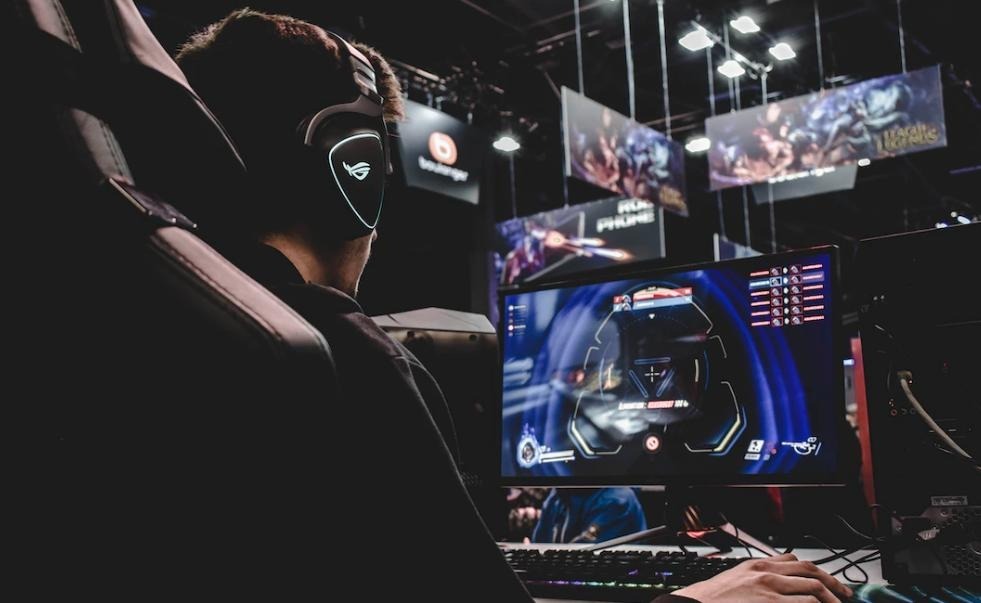The world of gaming is a complex and expansive world. It can be intimidating for a newbie to roll in and get started. These aren’t your parent’s games, today’s games look near real and the devices used to play them far more complex. And in some ways, gaming can feel a bit of a bro experience.
But there are many reasons why people might want to take up gaming as a new hobby. Injuries and sobriety are two big ones as gaming is able to fill in time voids that are inherent with an injury or cessation in drinking alcohol. Others may feel they want to experience the benefits of gaming. And then some may be looking for a NSFW erotic gaming experience they can share with their lover.
Enjoy our beginners guide to gaming.
Game Mechanics: Get Familiar With Controls, Devices
Without question, understanding how to utilize gaming controls and devices is essential. In fact, the biggest gaming hurdle for a newbie is confusion using the controls. Even Nintendo Switch controls are a bit of a puzzle for those who aren’t used to gaming remotes. Often, the remotes do much more than control a specific game’s characters, they serve to turn the device on and off, add players, and navigate the device interface.
Let’s break down a few types of controls and actions. Also, don’t feel stressed, we understand its a lot of information to digest.
Here’s an expanded explanation of basic controls and actions:
Movement Controls: Learn how to navigate your character within the game world. Understand the use of directional buttons, WASD keys, or analog sticks to move forward, backward, left, and right. Familiarize yourself with jumping, crouching, and sprinting mechanics.
Camera Controls: Get acquainted with controlling the in-game camera. Learn how to adjust the camera angle, pan the view, and zoom in or out. A well-managed camera perspective is crucial for situational awareness and spotting important details.
Combat Controls: Master the combat controls specific to your game. Understand how to attack, block, dodge, and use special abilities or spells. Practice the timing and combination of attacks to optimize your combat performance.
Interactions: Learn how to interact with objects, NPCs (non-player characters), and the environment. Understand how to pick up items, open doors, activate switches, and engage in dialogue with NPCs. These interactions are essential for progressing through the game and completing quests or objectives.
Menu Navigation: Familiarize yourself with the in-game menu system. Learn how to access your inventory, equip items, manage settings, and navigate through various menus. Efficient menu navigation allows you to quickly access important information and make necessary adjustments.
HUD (Heads-Up Display): Understand the information displayed on the HUD, such as health bars, mini-maps, quest trackers, and resource indicators. Recognize the significance of these elements in monitoring your character’s status and progression.
Additional Mechanics: Depending on the game, there may be additional mechanics to grasp, such as crafting, upgrading equipment, managing resources, or solving puzzles. Take the time to understand these mechanics as they often contribute to your overall success and enjoyment of the game.
Go Easy (At First)
You wouldn’t scale Mt. Everest as your first hike. Nope, you’d start with some of your local trails, work you way up to hills, and go from there. Its the same with gaming. Choose easier games, or games with beginner levels, to get started.
Here’s a list of beginner-friendly games to get you started.
- Minecraft
- Stardew Valley
- Mario Kart series
- Animal Crossing: New Horizons
- Portal series
- Ori and the Blind Forest
- Pokémon series
- Overcooked series
- Journey
- The Legend of Zelda: Breath of the Wild
These games are known for their accessibility and approachability, making them great choices for beginners in the gaming world.
Embrace Failure and Learn from Mistakes
You’re unlikely to roll out of the gates as an expert gamer. You’re going to flop, probably for a while, even while playing the beginner games. And that’s OK. Gaming is a skill no different than other skills. And all skills take time and effort and you must be OK failing and moving on. You must practice to get better.
How do you do that?
From a mindset perspective:
Embrace a Growth Mindset: Failure is a doorway to a better experience. Failing helps the brain evolve. Embrace a growth mindset that views failures as opportunities for improvement. Rather than getting discouraged, approach mistakes with a positive attitude, learning from them, and adjusting your strategies accordingly.
From a technical perspective:
Record and Review Gameplay: Use software or built-in game recording features to capture your gameplay sessions. Afterward, take the time to review the recordings. Pay attention to critical moments, decision-making, and execution of strategies. By observing your gameplay objectively, you can identify specific areas where mistakes were made.
Gaming can be a rewarding, fun experience that offers a number of benefits. But it is an acquired skill. You’ll need to embrace the bad days in order to reap the benefits of the good ones.
